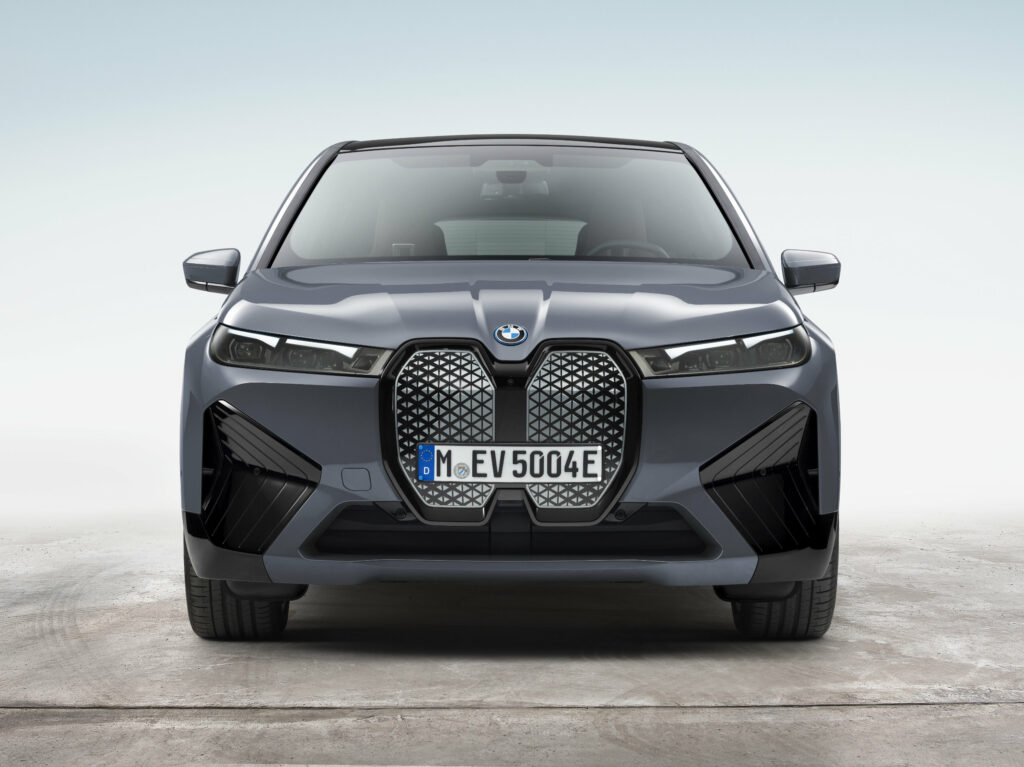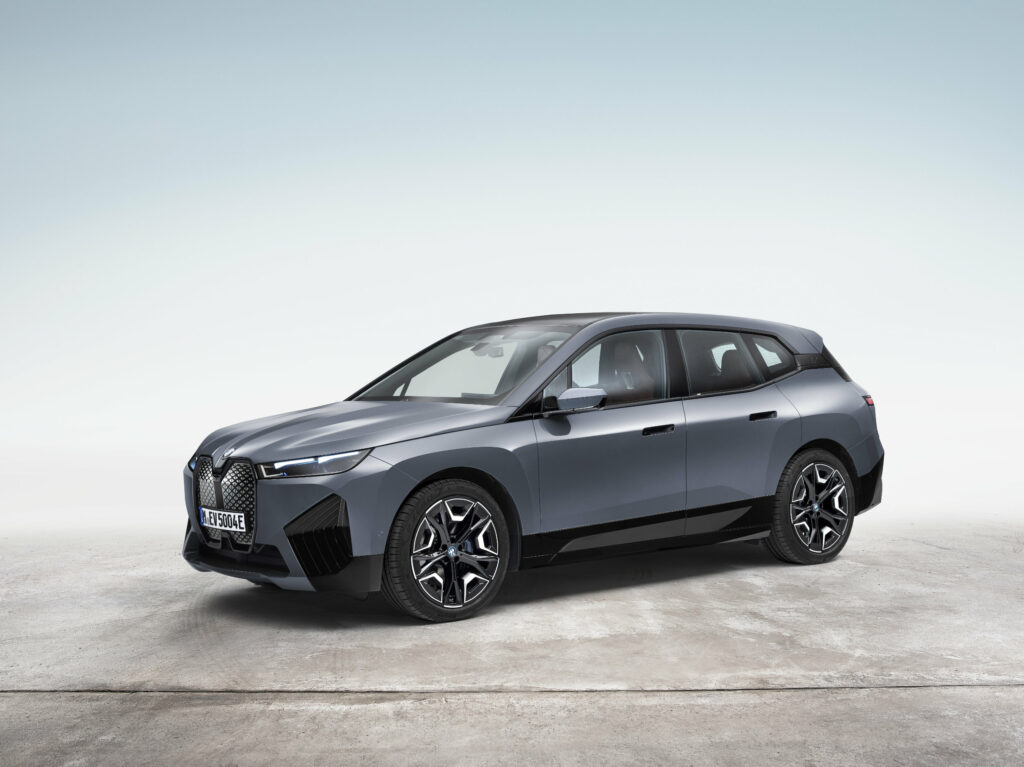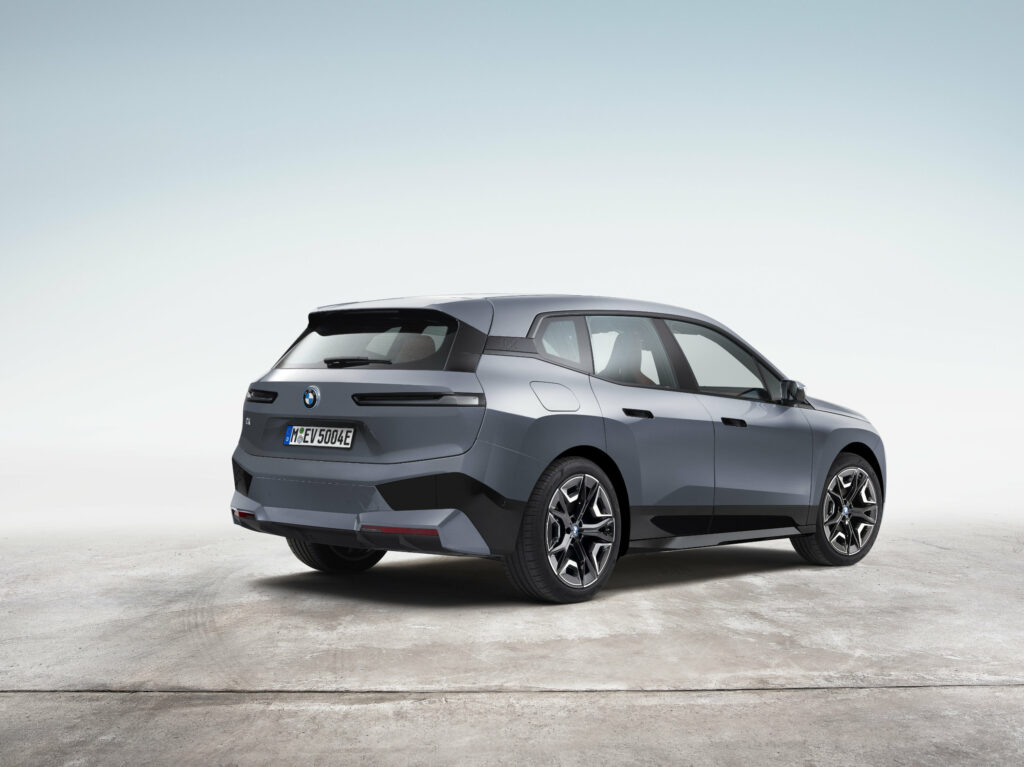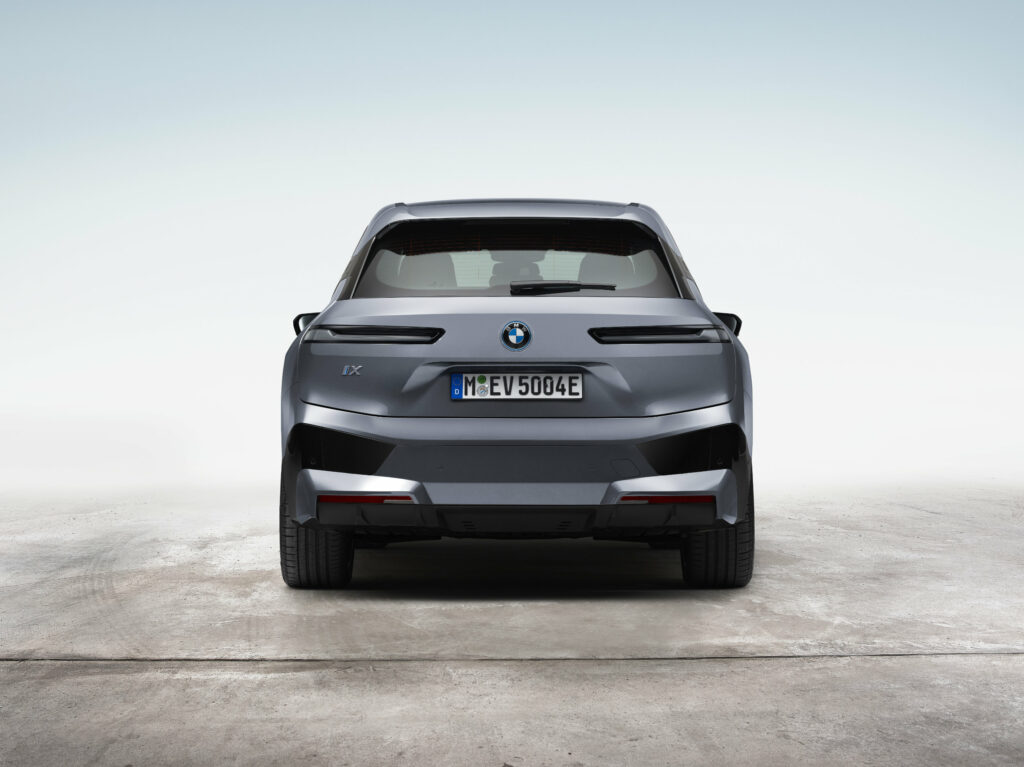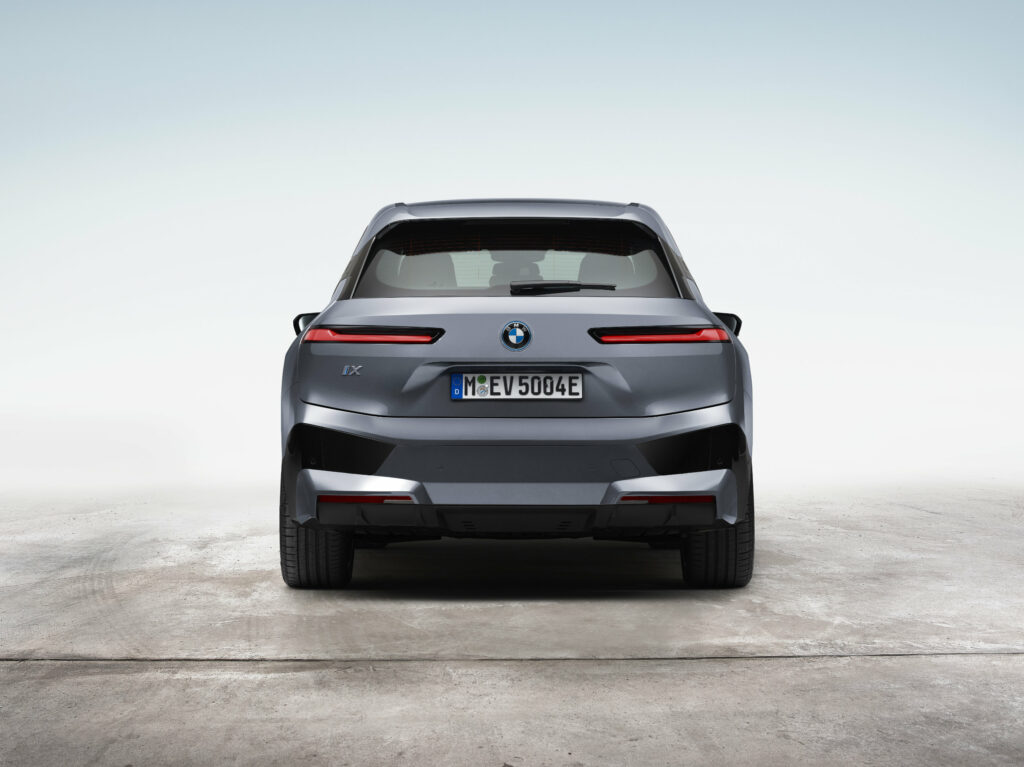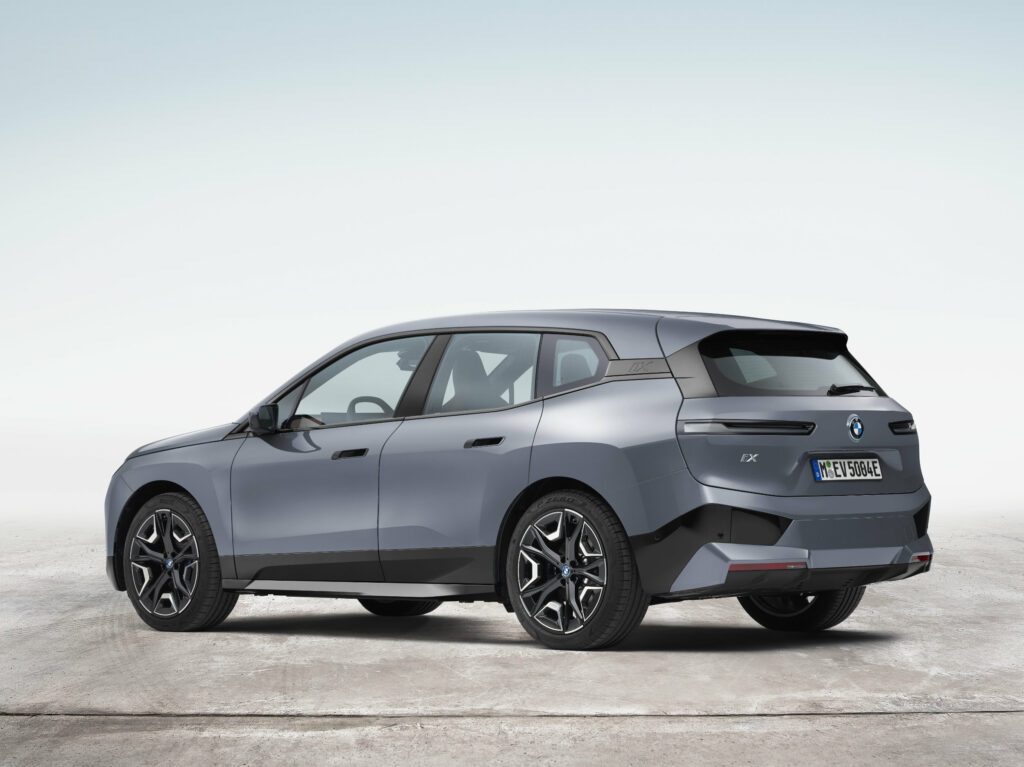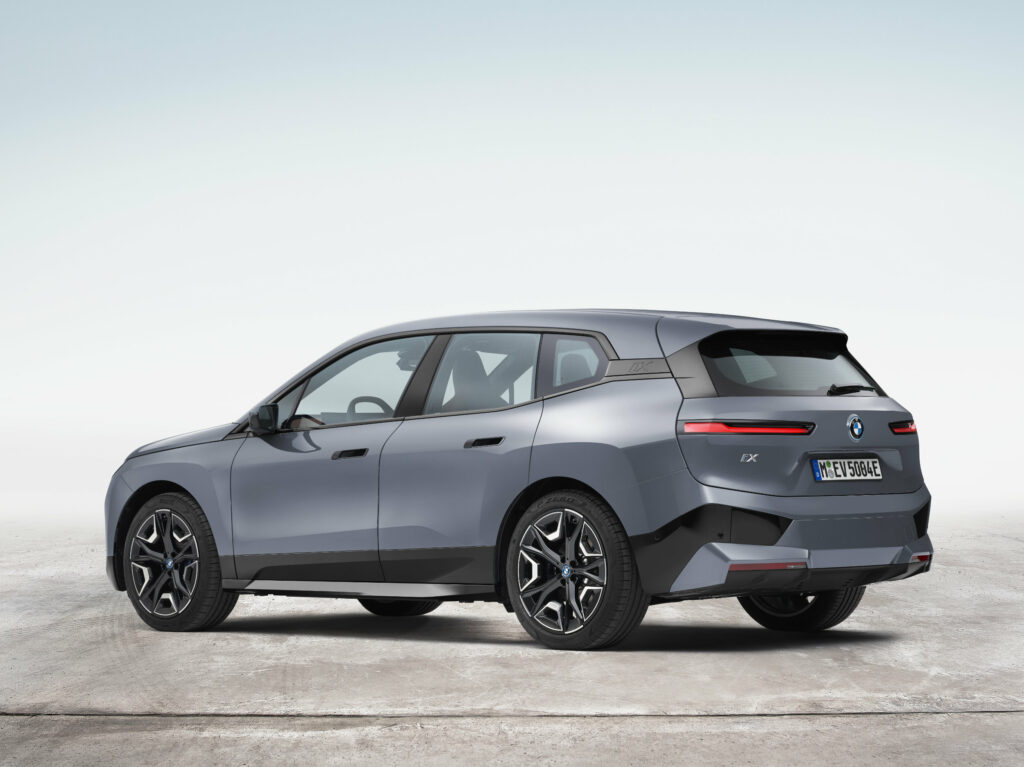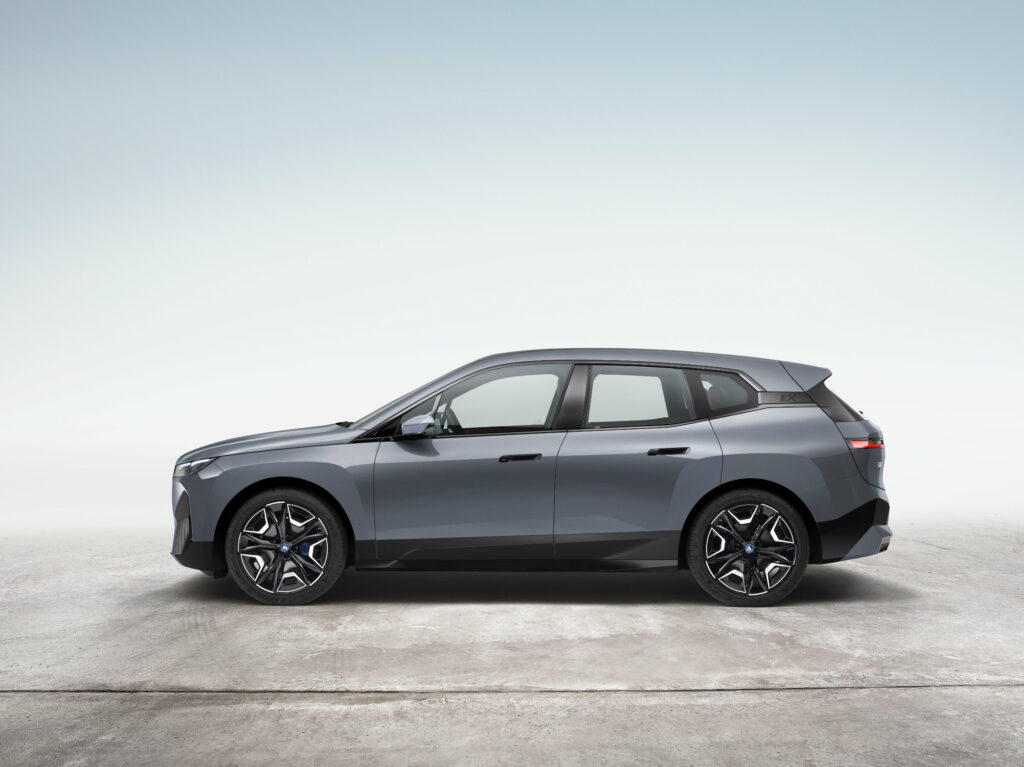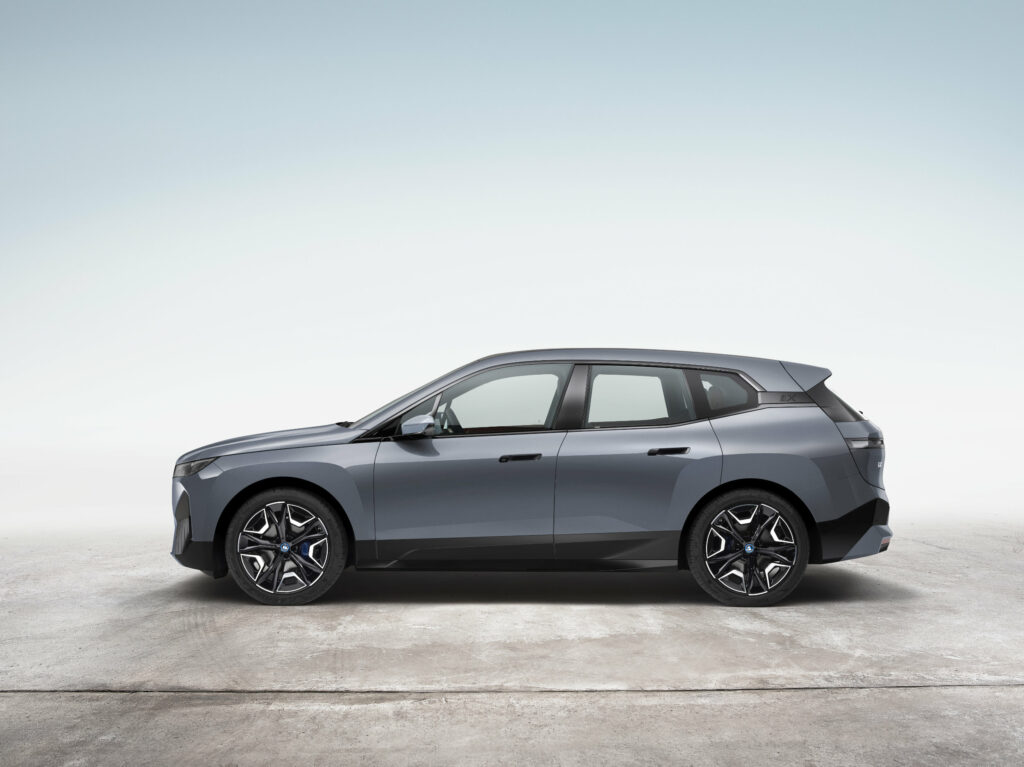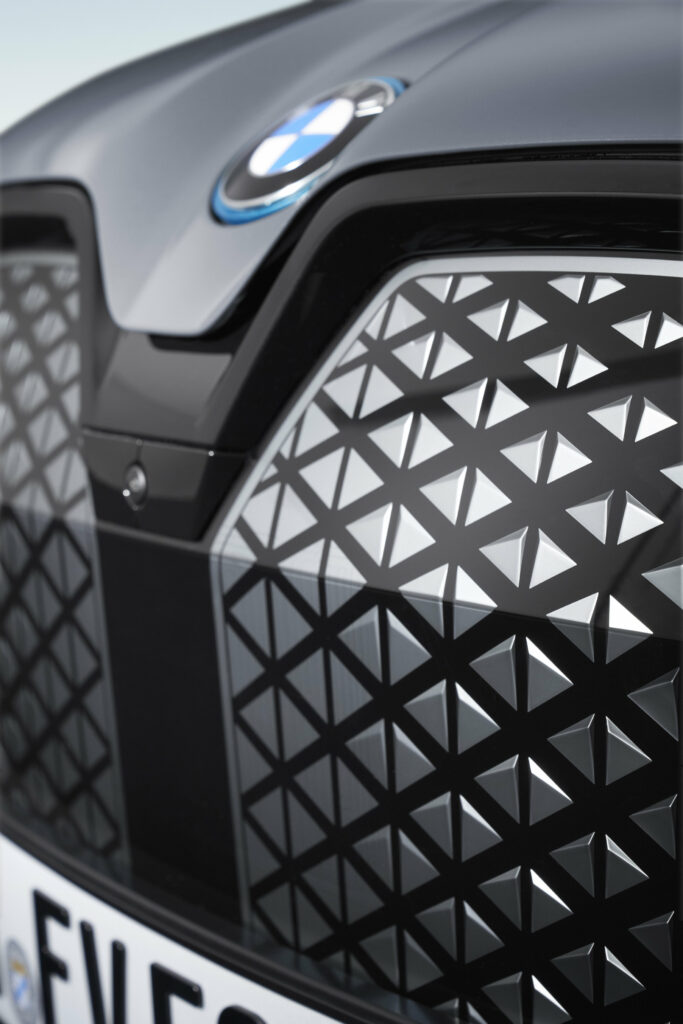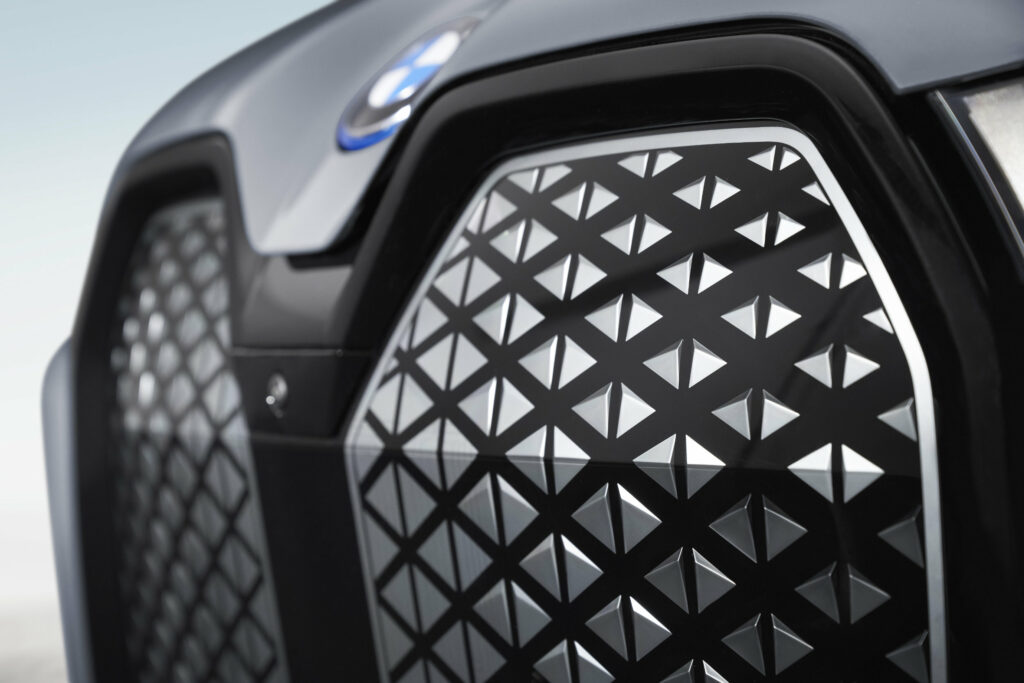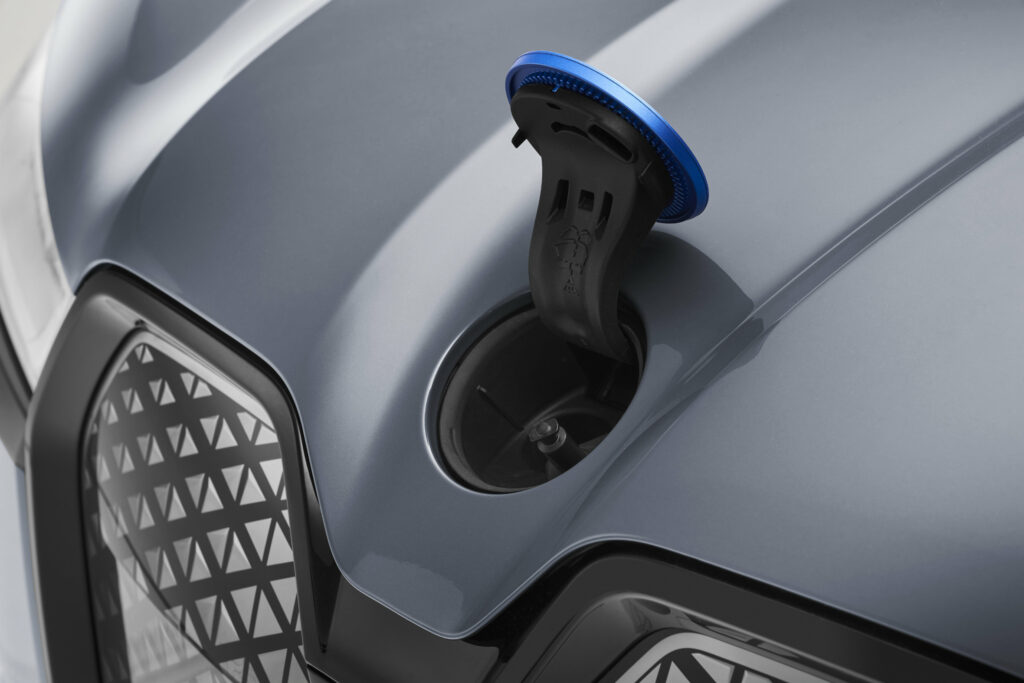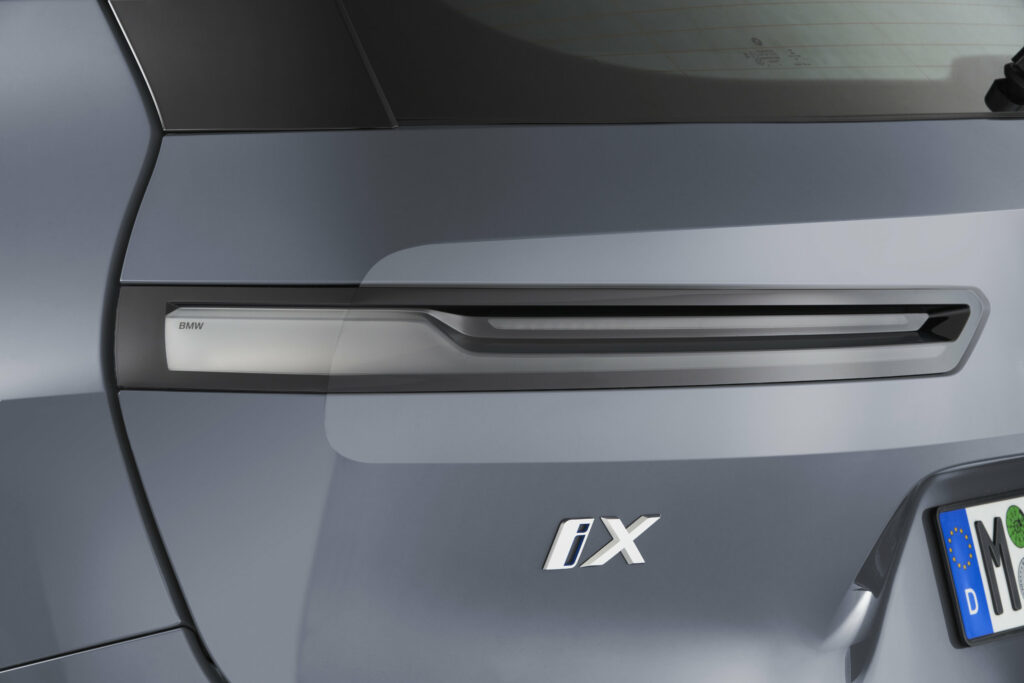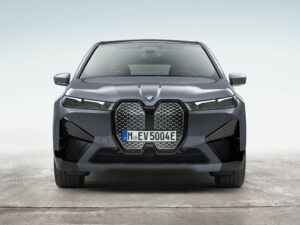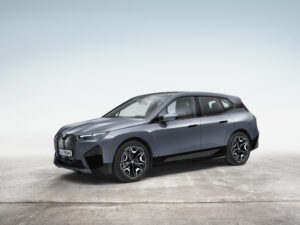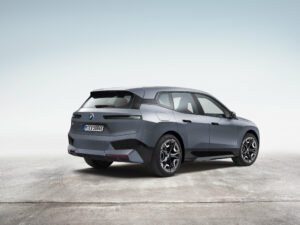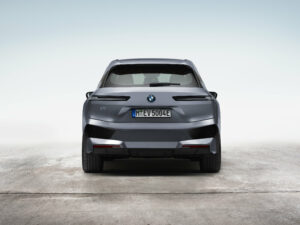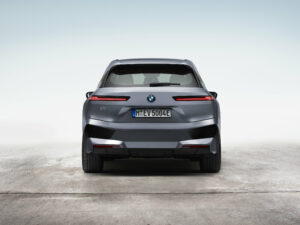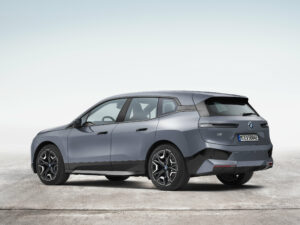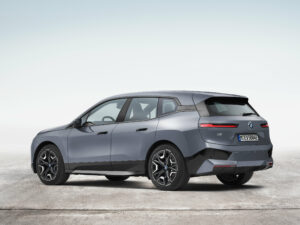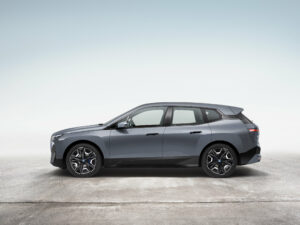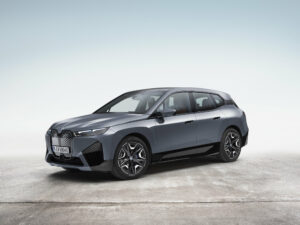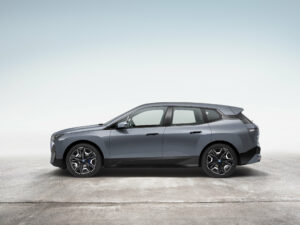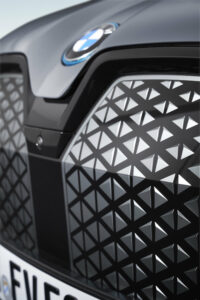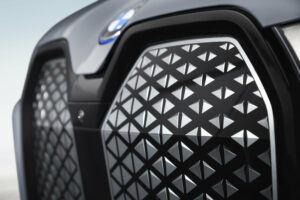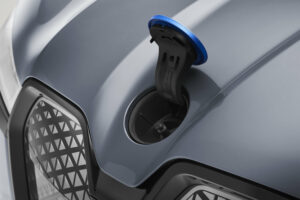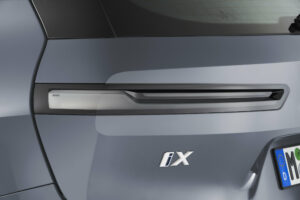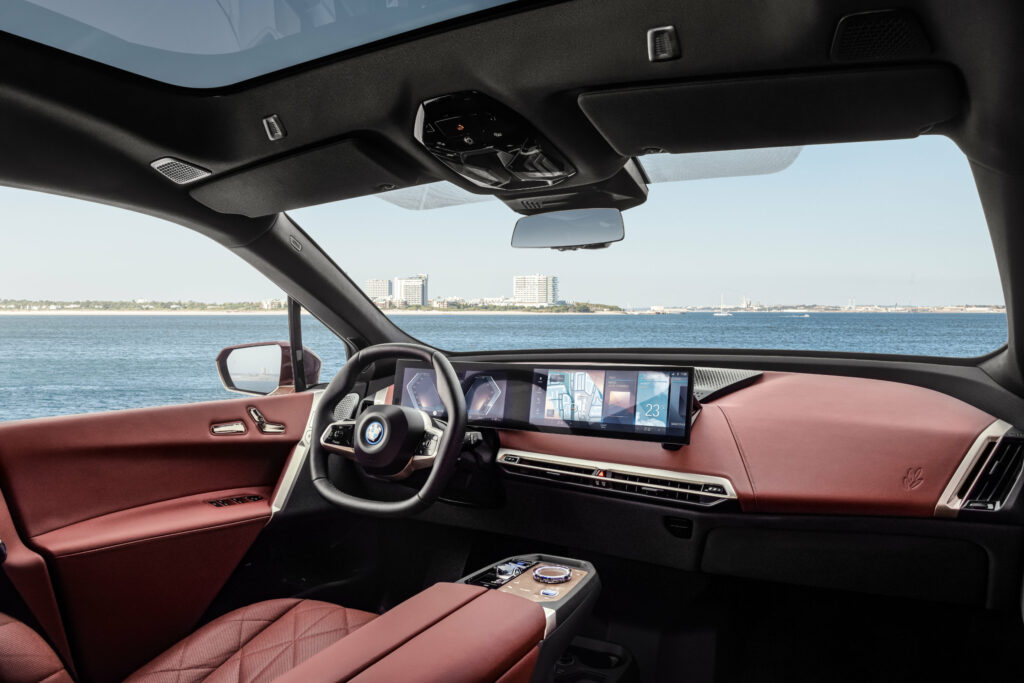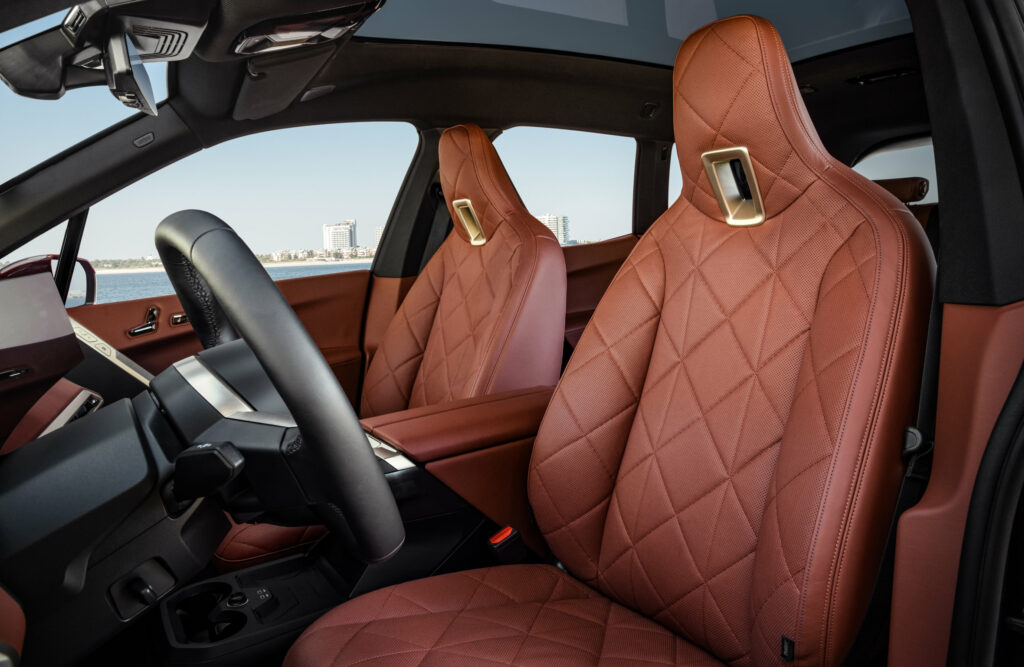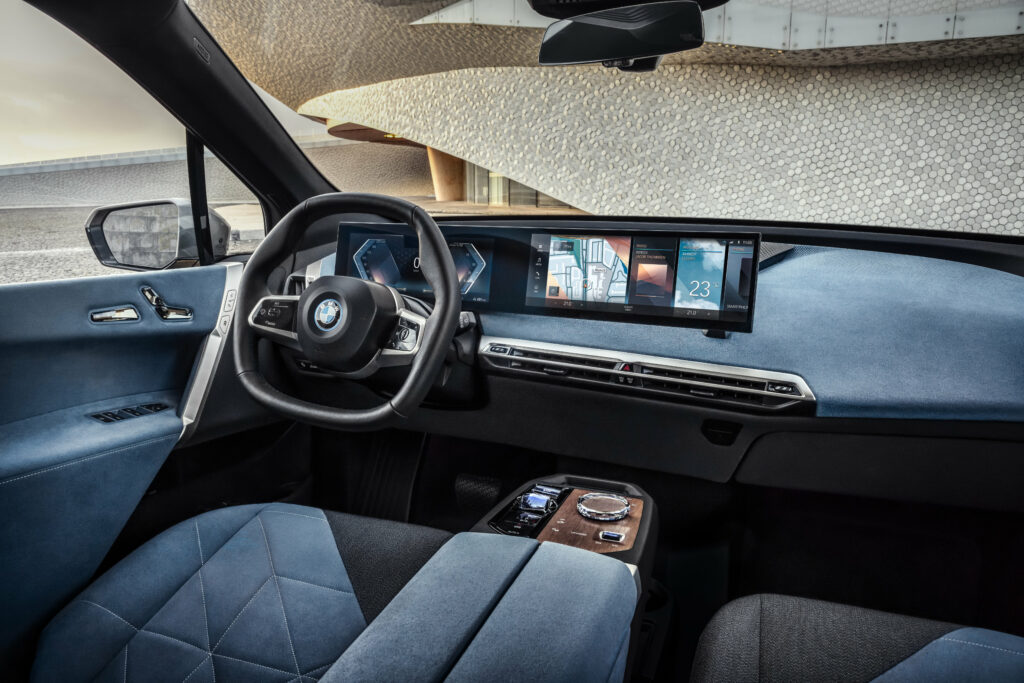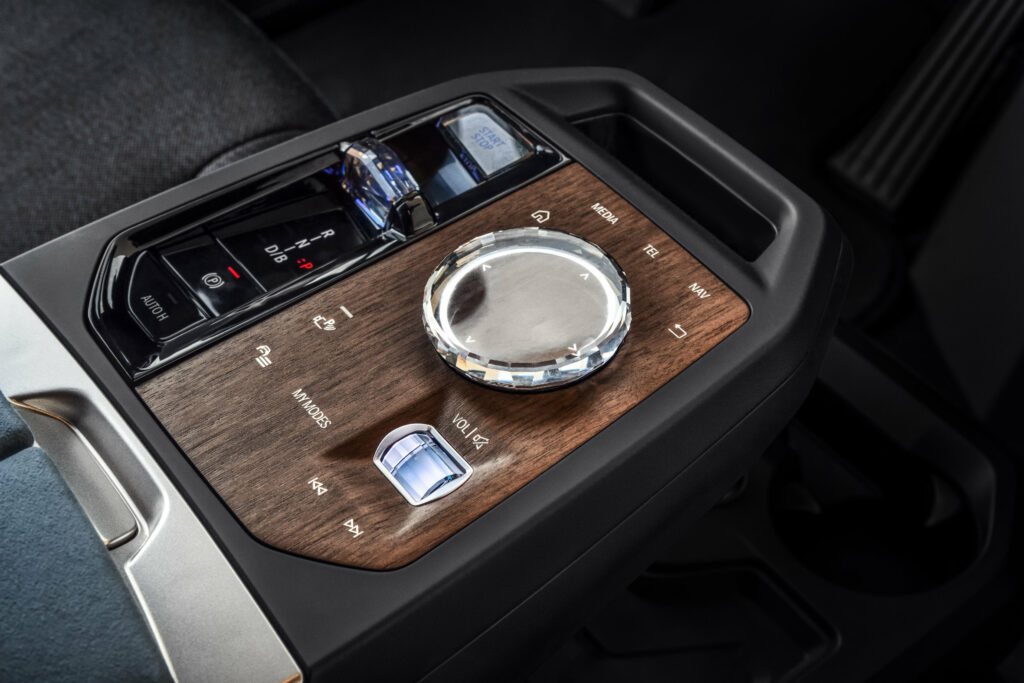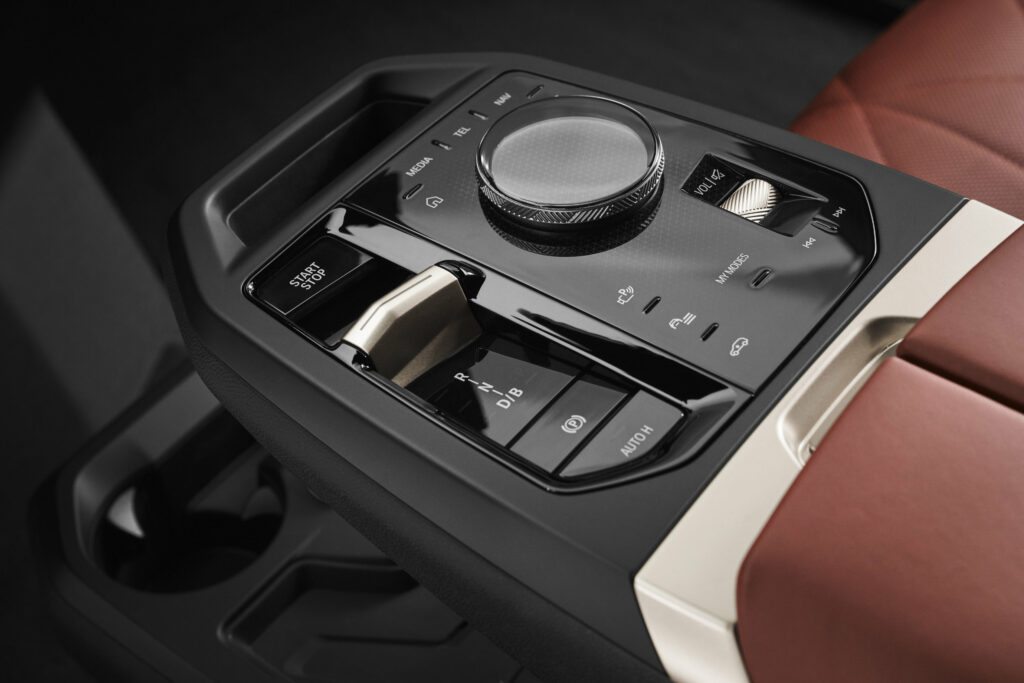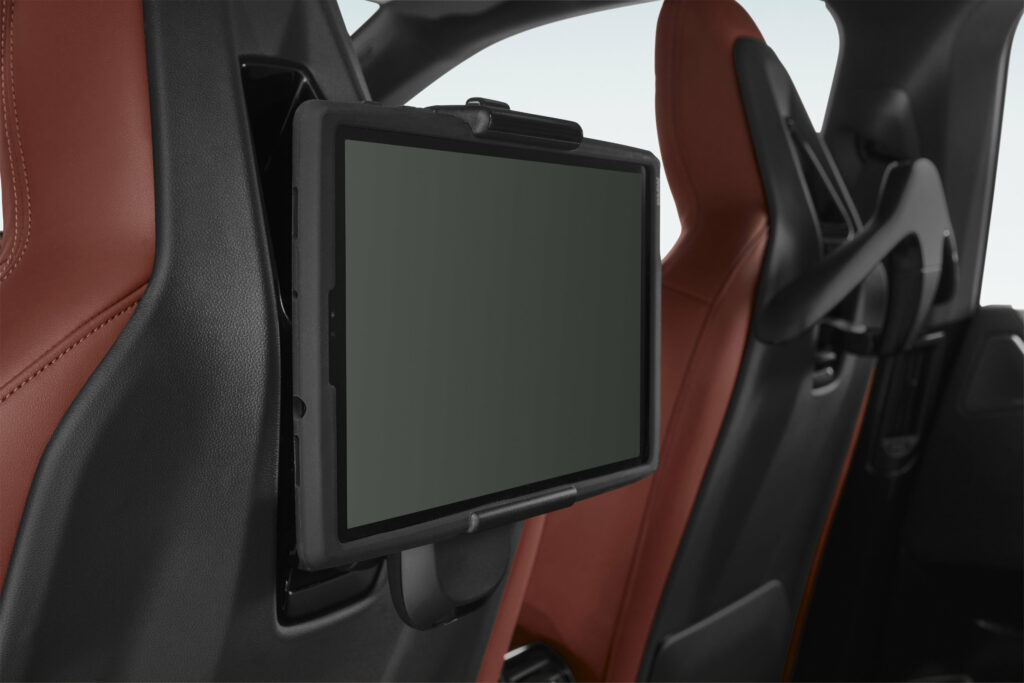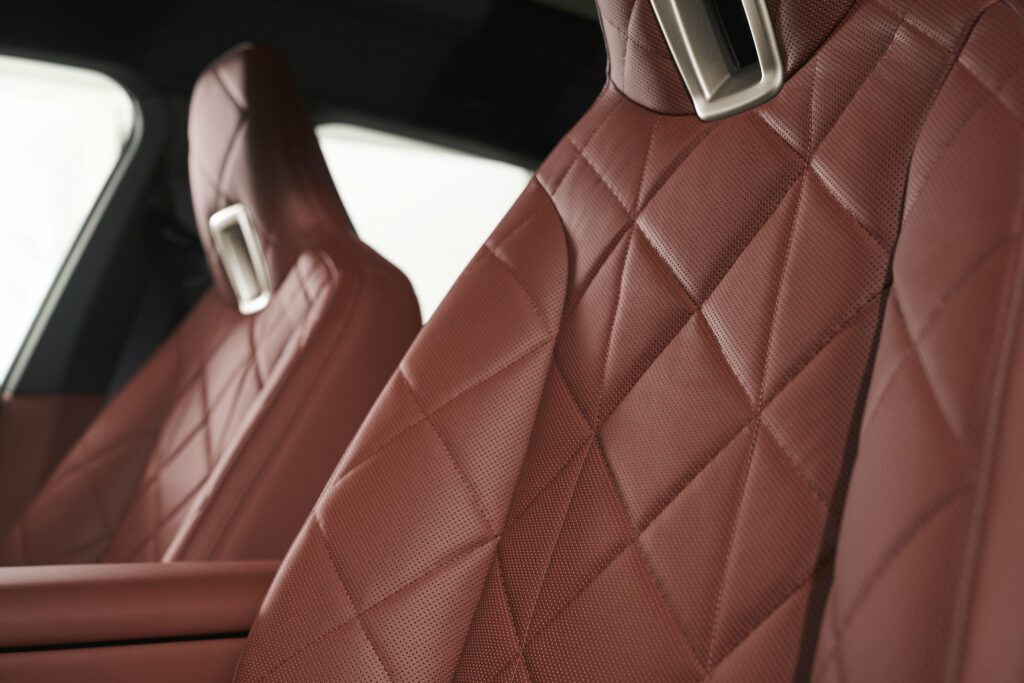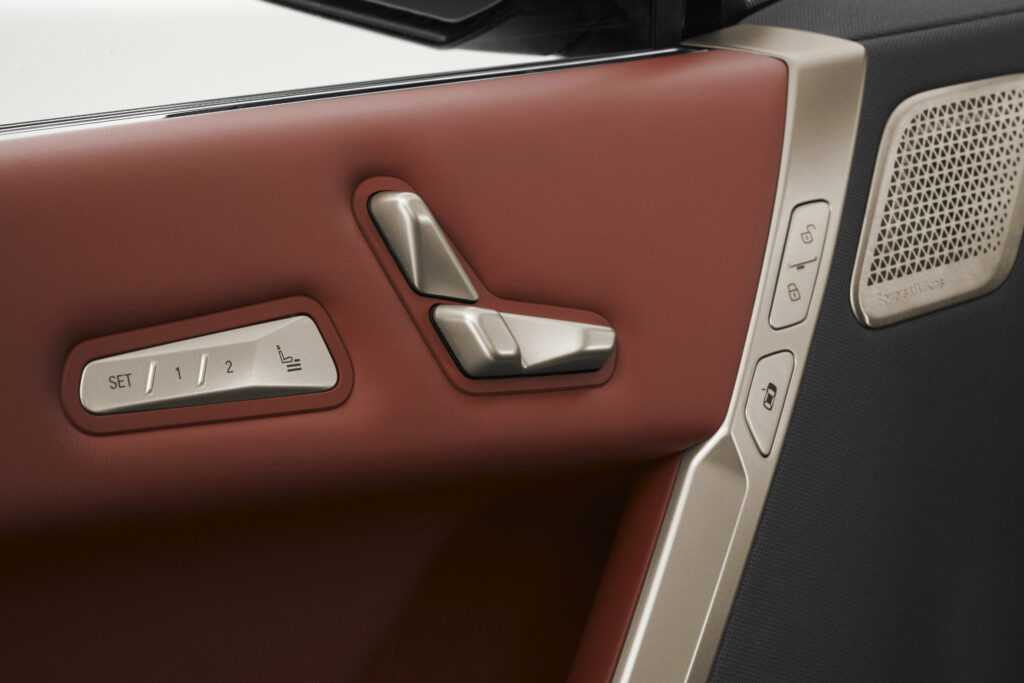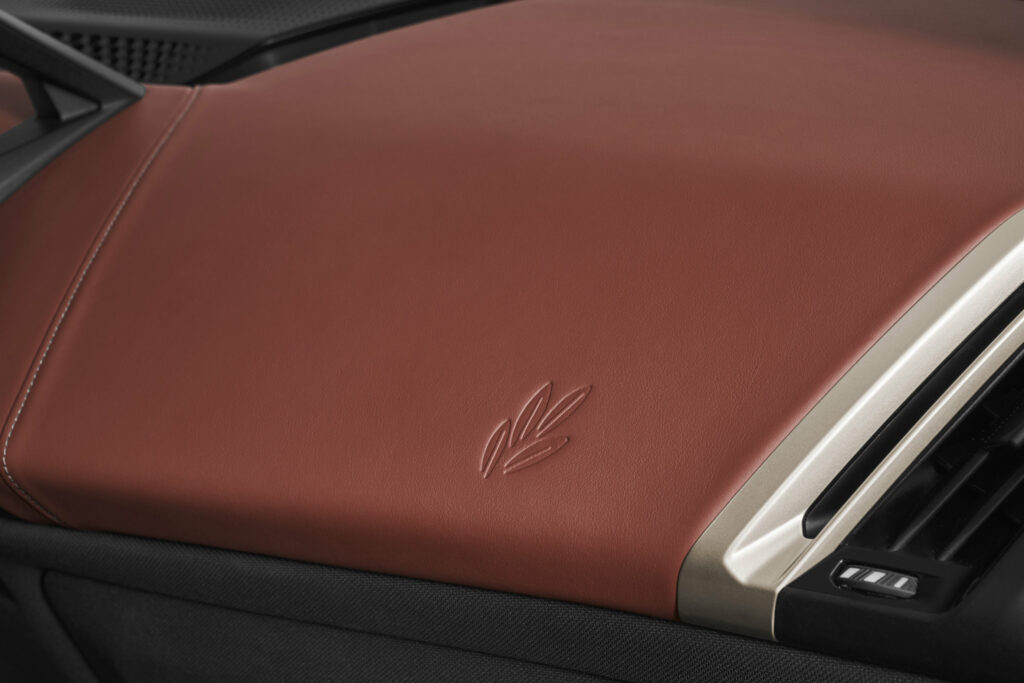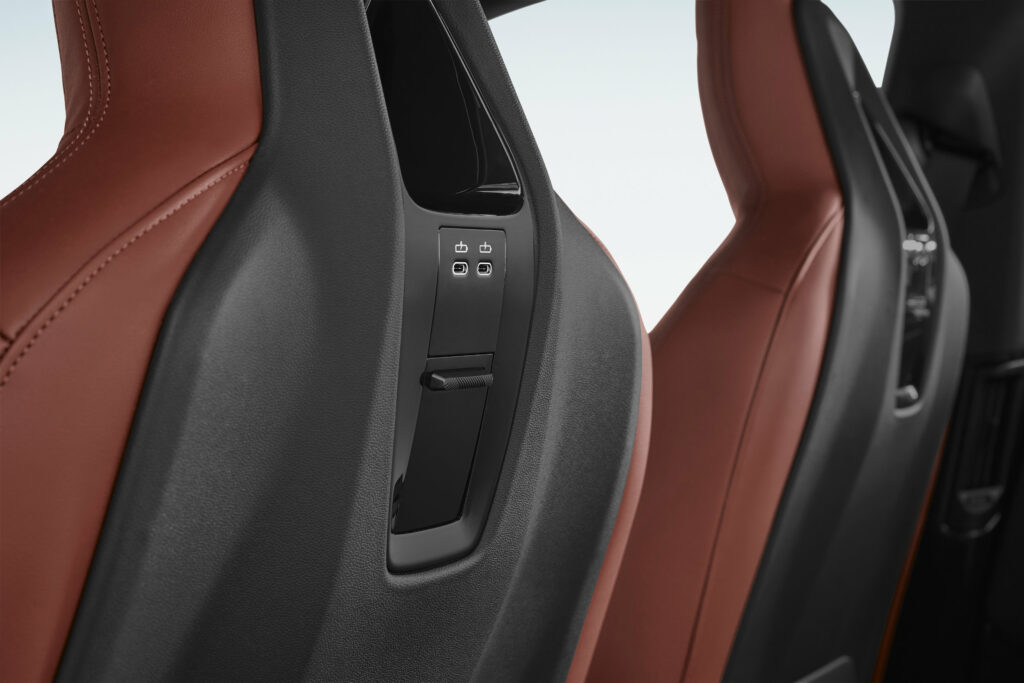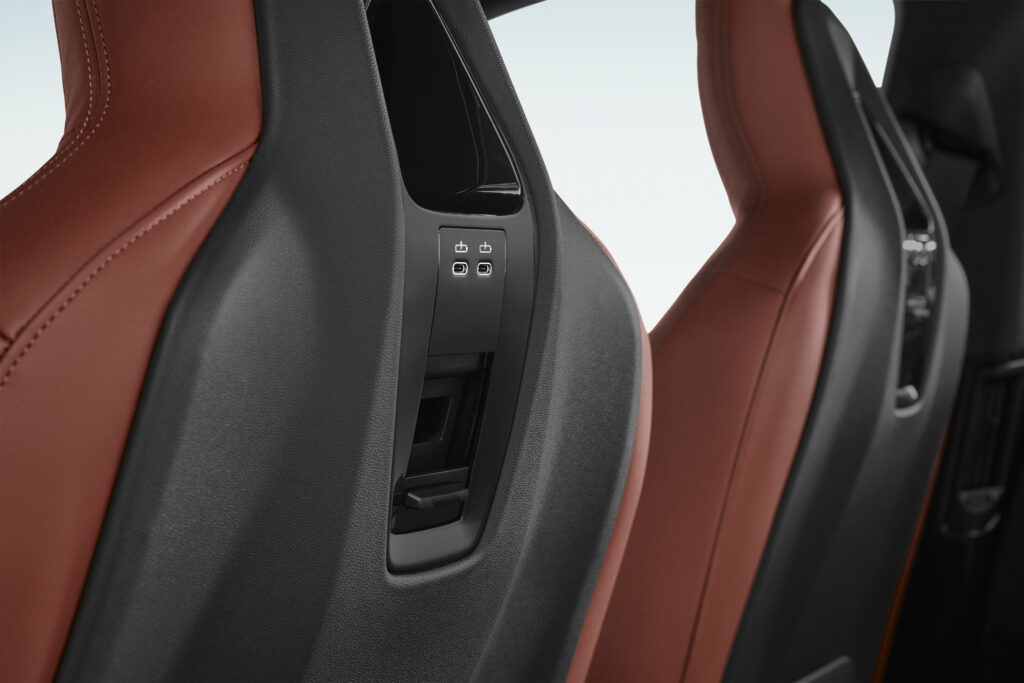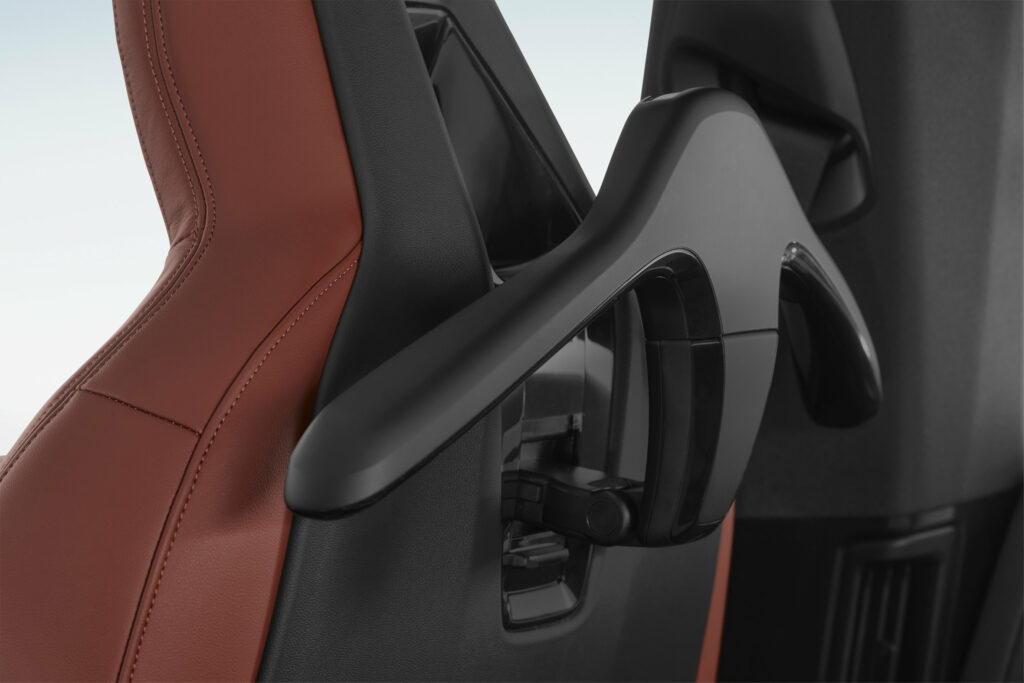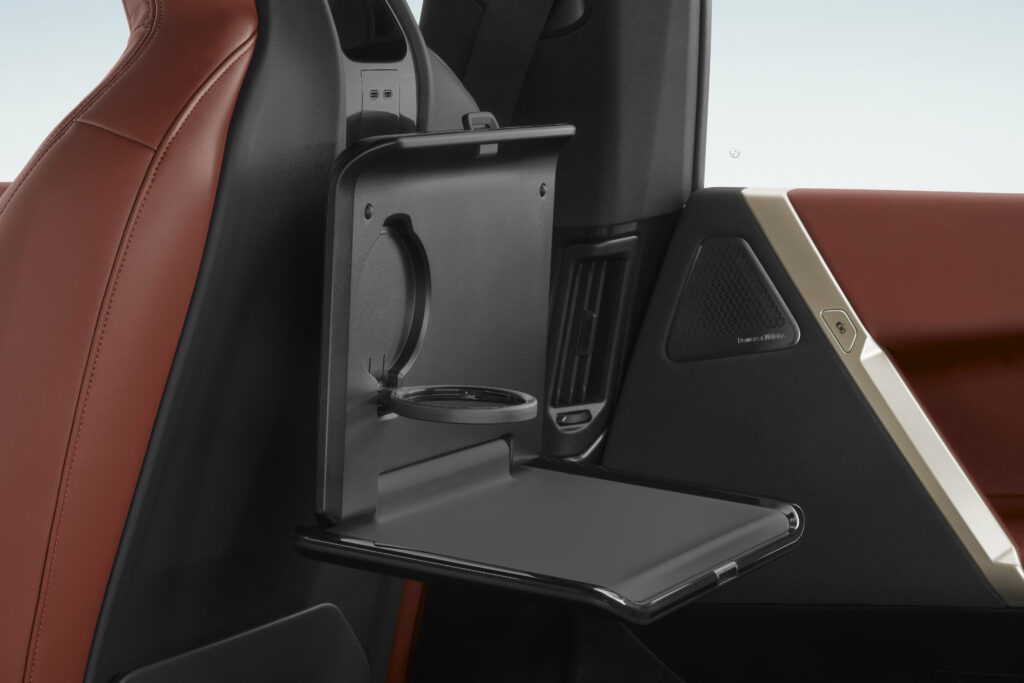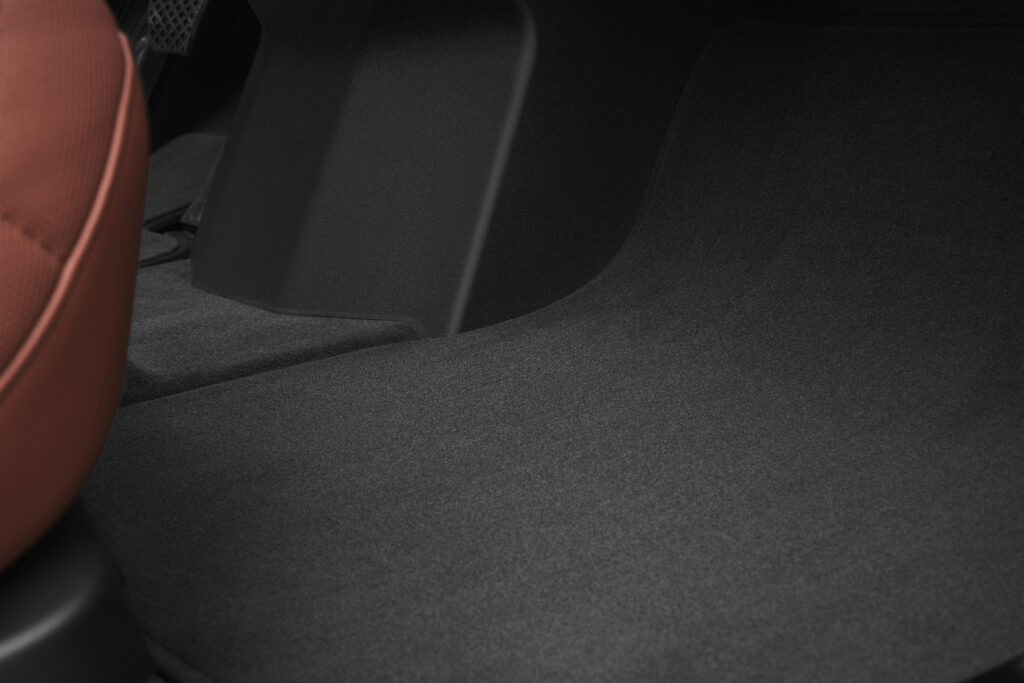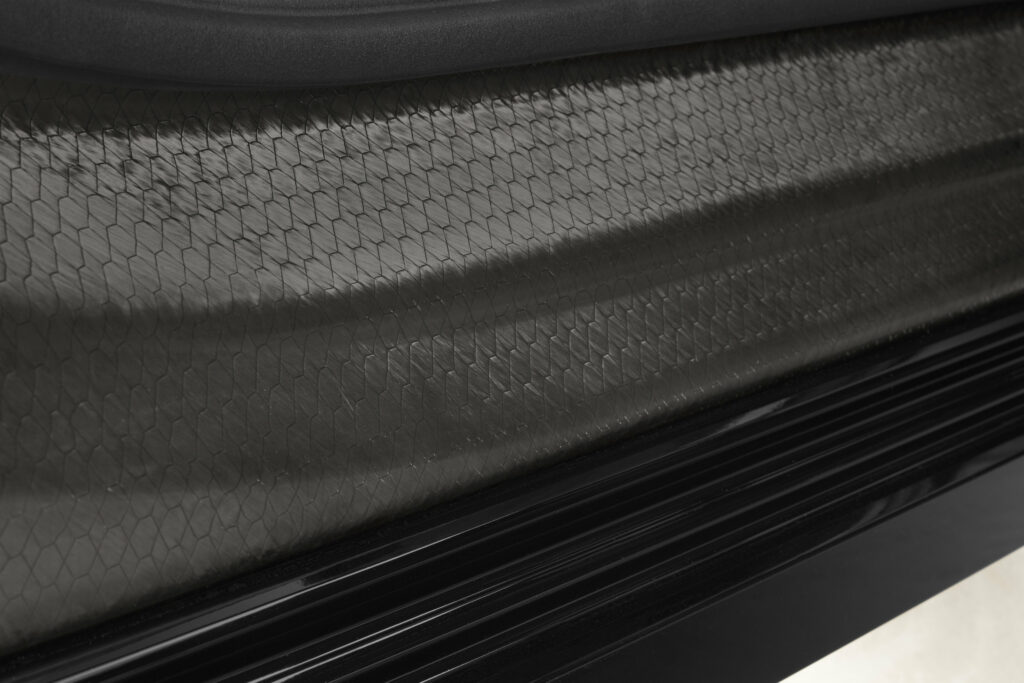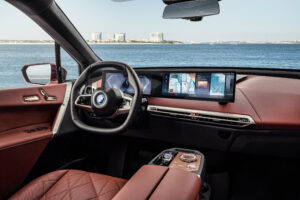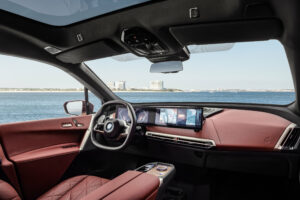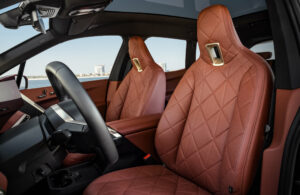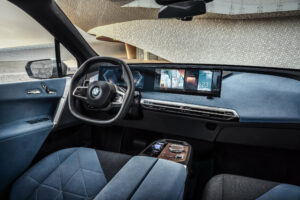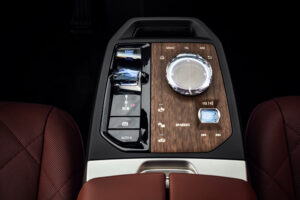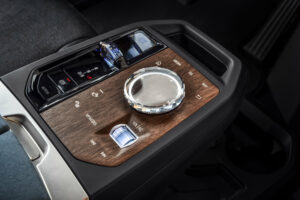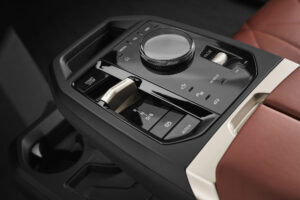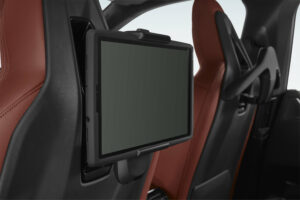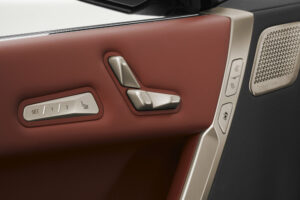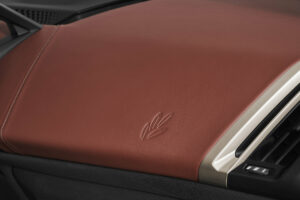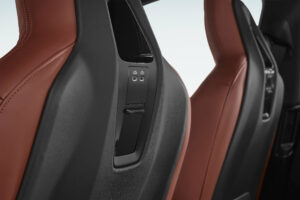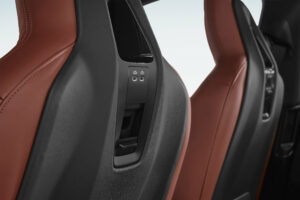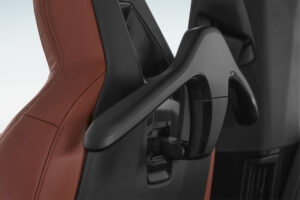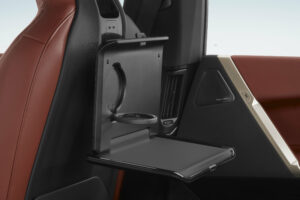BMW iX xDrive40
The BMW iX xDrive40 will be equipped with a 76.6 kWh battery. This capacity will only allow a drive of 400 km, but it is still better than the Audi e-tron SUV. The XDrive40 will also get two electric motors, which will give it all-wheel drive but only produce 240 kW (300 horsepower). According to BMW, the xDrive40 will take 6.1 seconds to accelerate to 100 km/h.
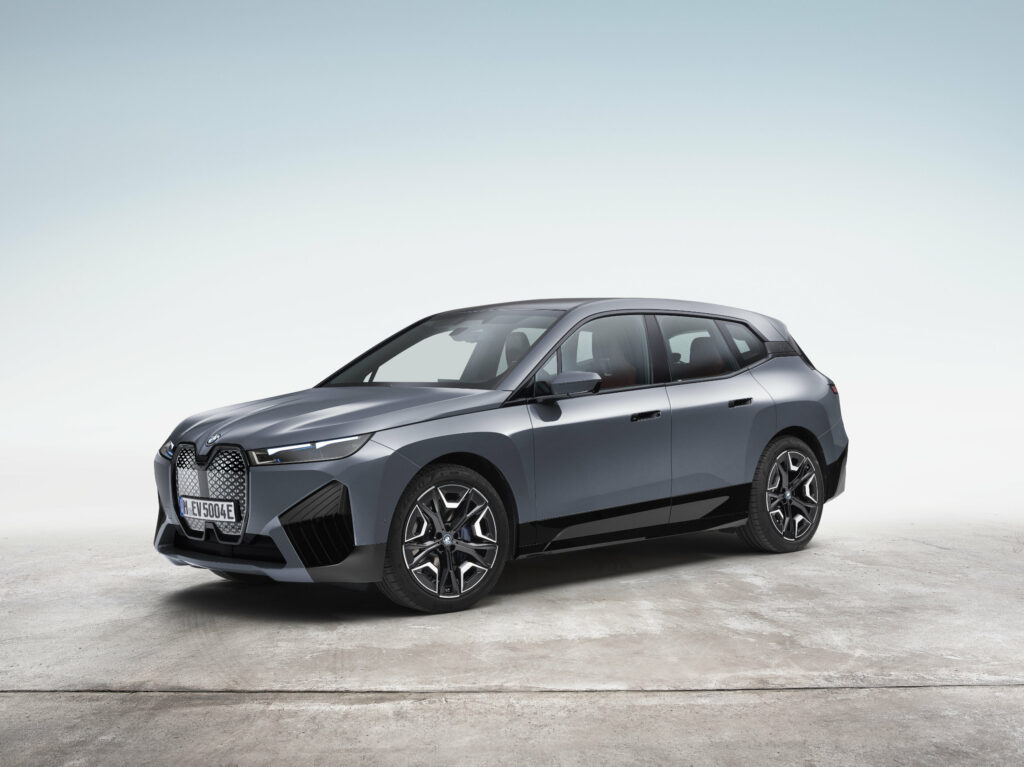
As for charging, the BMW iX will have excellent charging speeds on compatible 200 kW DC fast chargers. At the moment, that’s faster than the fastest Teslas. At this speed, the BMW iX can charge from 10 to 80 percent of its battery in just 31 minutes. There’s also a ten-minute fast charge that can quickly charge 90 percent of the way for the xDrive40.
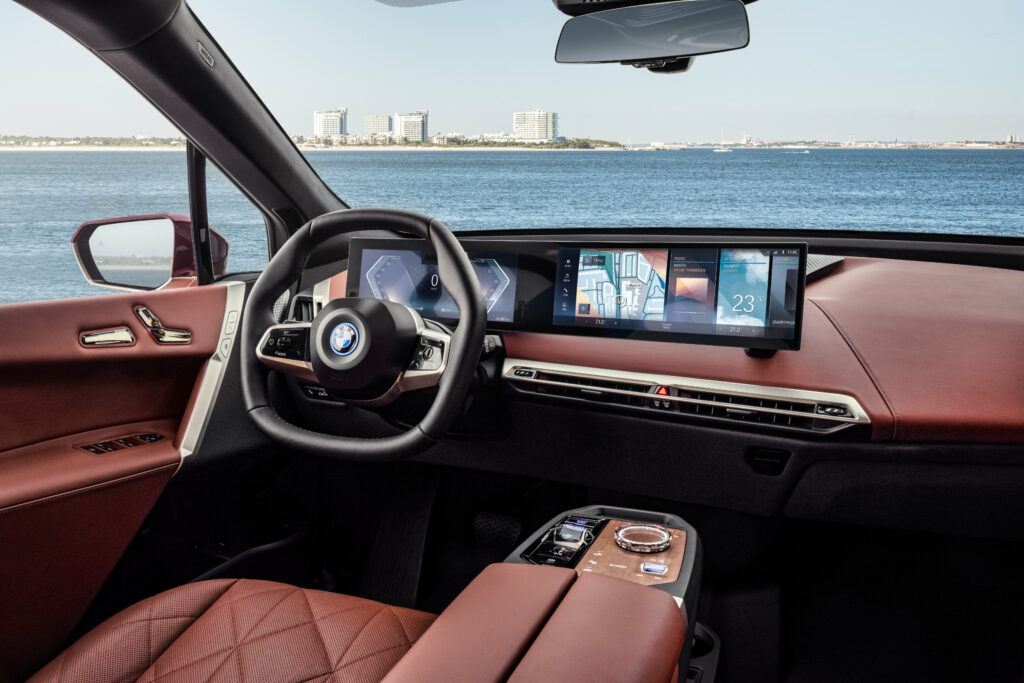
Some of the more affordable options on the BMW iX will be a massive panoramic sunroof, which will be the largest sunroof fitted on any BMW model, and there will also be electrostatic dimming. There will also be a Bowers & Wilkins 4D surround sound system with thirty speakers, eight of which are in the car’s headrests.
The BMW iX is now well positioned to stand up to cars like the Audi e-tron and Tesla Model X. It is priced similarly to those cars; in terms of specifications, it has competitive ranges, power, and performance, and actually boasts best-in-class pricing and speed.
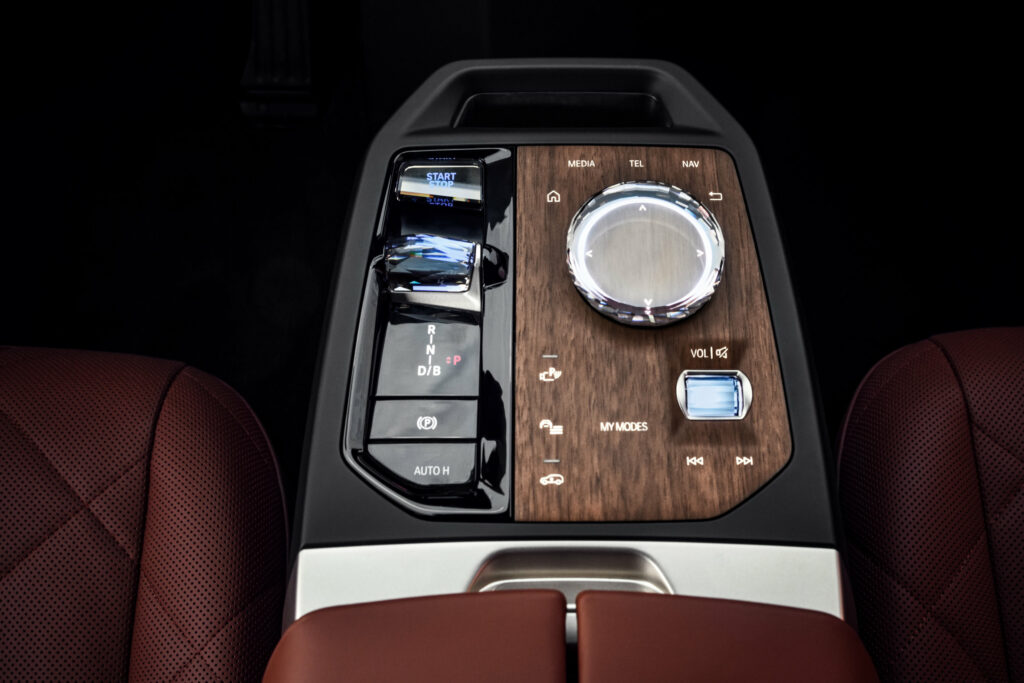
| Performance | |
| Acceleration 0 – 100 km/h | 6.1 sec |
| Top Speed | 200 km/h |
| Electric Range | 350 km |
| Total Power | 240 kW (326 PS) |
| Total Torque | 630 Nm |
| Drive | AWD |
| Battery and Charging | |
| Battery Capacity | 76.6 kWh |
| Battery Useable | 71.0 kWh |
| Europe | |
| Charge Port | Type 2 |
| Port Location | Right Side – Rear |
| Charge Power | 11 kW AC |
| Charge Time (0->350 km) | 7h45m |
| Charge Speed | 46 km/h |
| Fastcharge Port | CCS |
| FC Port Location | Right Side – Rear |
| Fastcharge Power (max) | 150 kW DC |
| Fastcharge Time (35->280 km) | 31 min |
| Fastcharge Speed | 470 km/h |
| Click here for all charging information | |
| Energy Consumption EVDB Real Range | |
| Range * | 350 km |
| Vehicle Consumption * | 203 Wh/km |
| CO2 Emissions | 0 g/km |
| Vehicle Fuel Equivalent * | 2.3 l/100km |
| WLTP Ratings (TEL) | |
| Range | 425 km |
| Rated Consumption | 194 Wh/km |
| Vehicle Consumption | 167 Wh/km |
| CO2 Emissions | 0 g/km |
| Rated Fuel Equivalent | 2.2 l/100km |
| Vehicle Fuel Equivalent | 1.9 l/100km |
| WLTP Ratings (TEH) | |
| Range | 372 km |
| Rated Consumption | 225 Wh/km |
| Vehicle Consumption | 191 Wh/km |
| CO2 Emissions | 0 g/km |
| Rated Fuel Equivalent | 2.5 l/100km |
| Vehicle Fuel Equivalent | 2.1 l/100km |
| TEL = Test Energy Low | TEH = Test Energy High | |
| Rated = official figures as published by manufacturer. Rated consumption and fuel equivalency figures include charging losses. | |
| Vehicle = calculated battery energy consumption used by the vehicle for propulsion and on-board systems. | |
| Real Energy Consumption Estimation between 142 – 278 Wh/km | |
| City – Cold Weather * | 206 Wh/km |
| Highway – Cold Weather * | 278 Wh/km |
| Combined – Cold Weather * | 237 Wh/km |
| City – Mild Weather * | 142 Wh/km |
| Highway – Mild Weather * | 222 Wh/km |
| Combined – Mild Weather * | 178 Wh/km |
| Energy use for each trip will vary considerably depending on the driver and the conditions. Therefore, we have provided a range of estimates which can be useful in developing an understanding of the potential benefits of this technology. | |
| Dimensions and Weight | |
| Length | 4953 mm |
| Width | 1967 mm |
| Width with mirrors | 2230 mm |
| Height | 1695 mm |
| Wheelbase | 3000 mm |
| Weight Unladen (EU) | 2440 kg |
| Gross Vehicle Weight (GVWR) | 3010 kg |
| Max. Payload | 645 kg |
| Cargo Volume | 500 L |
| Cargo Volume Max | 1750 L |
| Cargo Volume Frunk | No Data |
| Roof Load | 75 kg |
| Tow Hitch Possible | Yes |
| Towing Weight Unbraked | 750 kg |
| Towing Weight Braked | 2500 kg |
| Vertical Load Max | 100 kg |
| Miscellaneous | |
| Seats | 5 people |
| Isofix | No Data |
| Turning Circle | 12.8 m |
| Platform | No Data |
| Car Body | SUV |
| Segment | JE – Executive |
| Roof Rails | No |
| EV Dedicated Platform | Yes |
Home and Destination Charging (0 -> 100%)
A public charging station is required to use the highest possible charging rate. The EVSE/charging station’s charging capacity affects how long it takes to fully charge the battery. The table below shows all possible options for fully charging the BMW iX xDrive40.
In Europe, plugging an electric car into an outlet is often as easy as plugging it into a household outlet, but there are differences from country to country. The table below shows the different ways to charge the BMW iX xDrive40, but in some countries some chargers may not be available.
Type 2 (Mennekes – IEC 62196)

| Charging Point | Max. Power | Power | Time | Rate |
| Wall Plug (2.3 kW) | 230V / 1x10A | 2.3 kW | 36h30m | 10 km/h |
| 1-phase 16A (3.7 kW) | 230V / 1x16A | 3.7 kW | 22h45m | 15 km/h |
| 1-phase 32A (7.4 kW) | 230V / 1x32A | 7.4 kW | 11h30m | 30 km/h |
| 3-phase 16A (11 kW) | 400V / 3x16A | 11 kW | 7h45m | 45 km/h |
| 3-phase 32A (22 kW) | 400V / 3x16A | 11 kW | 7h45m | 45 km/h |
Fast Charging (10 -> 80%)
If you want to enjoy driving an electric car, one of the most important features to consider is the number of miles per hour the car can travel while charged. This is called the “range” of the car. All electric cars have a certain range, even if they are 100% charged. This is because they do not have an internal combustion engine to lean on if you need to drive a long distance.
Max. Power: The maximum power provided by the charging point
Avg. Power: The average power provided by the charging point during a session of 10% to 80%.
Time: the time it takes to charge from 10% to 80%
Speed: the average charging rate during the session of 10% to 80%
Combined Charging System (CCS Combo 2)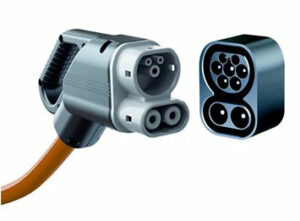
| Charging Point | Max. Power | Avg. Power | Time | Rate |
| CCS (50 kW DC) | 50 kW | 45 kW | 70 min | 210 km/h |
| CCS (100 kW DC) | 100 kW | 80 kW | 39 min | 370 km/h |
| CCS (150 kW DC) | 150 kW | 100 kW | 31 min | 470 km/h |
| Brand | BMW |
| Model | iX xDrive40 |
| Body Style | SUV |
| Car Engine | Electric |
| Motor power | 240 |
| Maximum Torque, Nm | 630 |
| Battery Energy, kWh | 76.6 |
| Power reserve (NEDC/EPA/WLTP), km | - / - / 500 |
| Level Charging (230/400/DC), hours | - / 7.45 / 0.31 |
| Electrical Acceleration, 0-100 km/h (0-62.1 mph) in sec | 6.1 |
| Top Speed, km/h | 200 |
